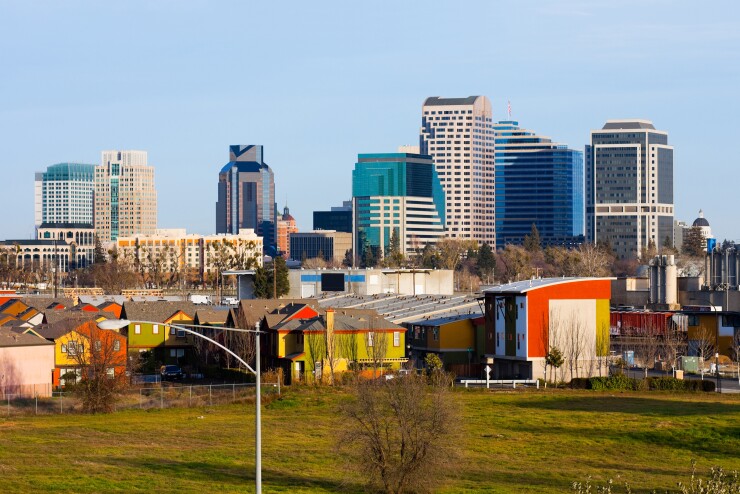
The starter home is becoming a myth for many first-time home buyers in the Sacramento market.
The typical renter's income of roughly $47,000 is less than half what it takes to afford the median-priced home in the area, according to a new analysis by Point2. That ratio is tied for 13th worst in the nation with Fresno and Tuscon, Arizona and places Sacramento in the same range as markets such as Seattle, Boston and Portland.
So what's to blame? Median prices are falling throughout the region. However, skyrocketing mortgage rates have added hundreds of dollars to monthly payments (the average mortgage rate went above 7% last week for the first time in 20 years). There is plenty of inventory in the market, but buyers are being forced onto the sidelines because of the escalating monthly costs.
Speaking at last week's North State Building Industry Association Regional Housing Forecast summit, Sanjay Varshney, the founder and principal of Goldenstone Wealth Management and former dean of the business school at California State University, Sacramento, said people making $100,000 a year can afford just 10% of the homes on the market. Those who earn $50,000 annually can afford a paltry 0.3% of listings.
"Sacramento does not have the income levels to afford the kinds of homes with the pricing that you see in the market today," he said.
"That's the affordability loss we have seen in Sacramento thanks to COVID, thanks to all the influx (of people) from the Bay Area," Varshney added. "Our own people cannot afford our homes."
Greg Paquin, the principal of the Gregory Group and a California real estate market expert, said mortgage rates are largely to blame. Earlier this year, rates were below 3%.
"The problem is, people who are buying houses today, and especially younger people, don't remember those rates," he said.
While median prices have dropped since May, Paquin and other market analysts have noted that prices are still far above what they were two years ago. The median price for a new home in the region is up 37.2% — or nearly $200,000 — since 2020, Paquin said.
"If anyone is wondering why people aren't buying: it doesn't matter about inventory, it doesn't mater about if they're coming from the Bay Area or not," he said. "It matters that people can't afford it."
Paquin predicts new home prices will decline next year. The California Association of Realtors has made the same forecast, predicting the median price for a single family home in the state will go down 8.8% in 2023.
In the meantime, Paquin said home builders need to adapt to the tastes of first-time buyers by focusing more on town homes and redeveloping under-utilized commercial areas.
"We're going to have to find solutions or these buyers, these young people are going to leave," he said.




